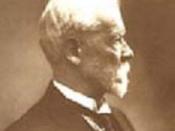As the world moves through the 21st Century, business is becoming more dependent upon professional managers, who can bring success to an organization. Issues such as globalization and decentralization adds to the need for organization's to hire flexible managers capable of leading. A 21st century manager should possess three traits and utilize them to lead organizations: the ability to stimulate change, excellent planning capabilities, and ethics.
What a manager does and how it is done can be categorized by Henri Fayol's four functions of management: Planning, Organizing, Leading and Controlling. Through these functions managers can be catalysts for change or by definition change agents - "People who act as catalysts and manage the change process." (Robbins, Bergman, Stagg and Coulter, 2000, p.438) Whether performing the role of the change agent or not, change is an integral part of a manager's job. Change is "An alteration in people, structure or technology."
(Robbins et al., 2000, p.437) Change occurs within and around organizations today at an unprecedented speed and complexity. Change poses threats and creates opportunities. The fact that change creates opportunities is reason why managers need to encourage change.
What a manager can change falls distinctively into the three categories stated in the definition of change: people, structure, and technology. The manager can make alterations in these areas in an attempt to adapt to or facilitate change. The change of people involves changing attitudes, expectations, perceptions and behavior. These changes are used to help people within organizations to work together more effectively. Changing structure relates to job design, job specialization, hierarchy, formalization and all other organizational structural variables. These changes are ones that need to be flexible and not static to be adaptable to change. Technological change entails modification of work processes and methods and the introduction of new equipment. Changes...



Watch out
This essay is filled with alot of great information with all of the sources listed for future research. Just watch out for all of the errors. There are a ton of fragments, grammar problems, and spelling errors. But the content is good.
4 out of 4 people found this comment useful.